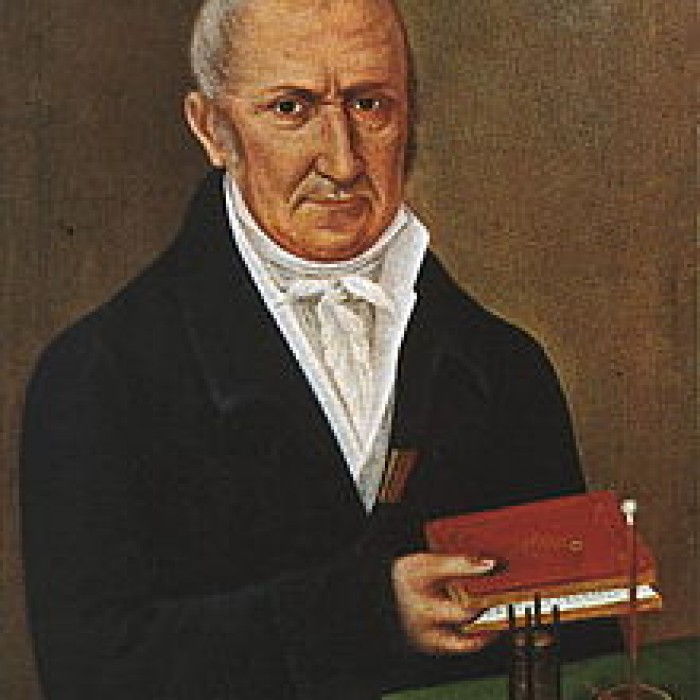
Alessandro Giuseppe Antonio Anastasio Volta (18 February 1745 – 5 March 1827) was an Italian physicist, chemist, and a pioneer of electricity and power, who is credited as the inventor of the electrical battery and the discoverer of methane.
He invented the Voltaic pile in 1799, and reported the results of his experiments in 1800 in a two-part letter to the President of the Royal Society.
Alessandro Volta also drew admiration from Napoleon Bonaparte for his invention, and was invited to the Institute of France to demonstrate his invention to the members of the Institute.
Alessandro Volta held the chair of experimental physics at the University of Pavia for nearly 40 years and was widely idolised by his students.
Volta was born in Como, a town in present-day northern Italy (near the Swiss border), on 18 February 1745.
In 1794, Volta married an aristocratic lady also from Como, Teresa Peregrini, with whom he raised three sons: Zanino, Flaminio, and Luigi.
In 1774, he became a professor of physics at the Royal School in Como. A year later, he improved and popularised the electrophorus, a device that produced static electricity.
The battery made by Volta is credited as one of the first electrochemical cells. It consists of two electrodes: one made of zinc, the other of copper.
In 1809 Volta became associated member of the Royal Institute of the Netherlands. In honour of his work, Volta was made a count by Napoleon Bonaparte in 1810.
Volta retired in 1819 to his estate in Camnago, a frazione of Como, Italy, now named "Camnago Volta" in his honour.
He died there on 5 March 1827, just after his 82nd birthday. Volta's remains were buried in Camnago Volta.
Volta's legacy is celebrated by the Tempio Voltiano memorial located in the public gardens by the lake. There is also a museum which has been built in his honour.
Volta was raised as a Catholic and for all of his life continued to maintain his belief.
Source: Link

1564 - 1616

1803 – 1882

1854 – 1900

1942 – 2016

1928 – 2014

1835 – 1910

1869 – 1948

1884 – 1962
1898 – 1963

1929 – 1993

1879 – 1955

1809 – 1865

1807 – 1870

1800 – 1859

1795 – 1821

1755 – 1793

1984 -

1989 – 2011

1943 – 2001

1815 – 1902

1929 – 1994

1767 – 1848
